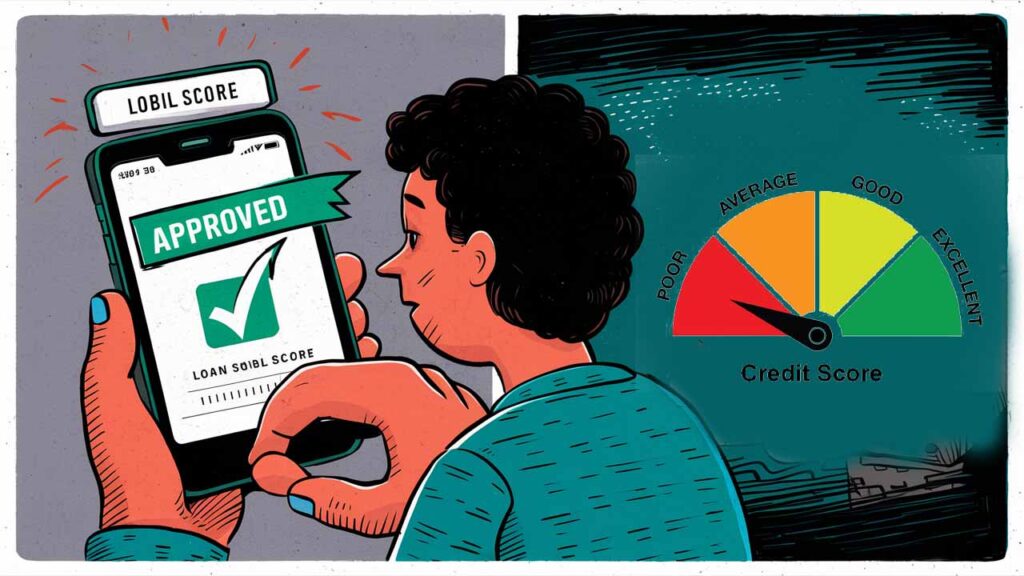Summary
The recent order of the Income Tax Appellate Tribunal (ITAT Hits Yes Bank) has clarified the case of the delayed Provident Fund (PF) deposit of Yes Bank. The bank was forced to pay a tax demand of ₹9.75 crore since it hadn’t deposited the PF contribution of its employees on time. Even though Yes Bank later remitted the payment, it made disallowance of such payments as tax deductions by the Income Tax Department, hence resulting in the imposition of a heavy tax.
The issue is under Section 36(1)(va) of the Income Tax Act, which mandates that employers must deposit employee contributions, such as Provident Fund (PF), within a stipulated time frame. Failure to do so results in the loss of the right to claim such amounts as business expenses, leading to a higher tax outgo. In the case of Yes Bank, even though the delay in depositing the PF contribution was by just a few days, the bank had to bear the tax penalty.
This financial strain, combined with regulatory scrutiny and operational challenges, may have added to the complexities surrounding the loan settlement for Yes Bank, highlighting how compliance issues can further impact an institution already navigating recovery and restructuring efforts.
This decision is important not only for Yes Bank (ITAT Hits Yes Bank) but for all Indian businesses as well. It enforces the maintenance of legal timeframes of staff benefits such as PF and ESI. Non-compliance will result in dire monetary consequences in the form of fine, refusal of tax benefits, and erosion of company image.
Introduction
In a recent and serious development, the Income Tax Appellate Tribunal (ITAT Hits Yes Bank) has demanded a tax of ₹9.75 crore from Yes Bank. Why? Because the bank had been late in depositing Provident Fund (PF) contributions withheld from the salaries of its employees. This case has gained a lot of attention because it highlights the importance of timely payment of employee benefits, and how serious the consequences would be if norms are not followed in a proper way.
The case was taken up before the Tax Appellate Tribunal, and it upheld the Income Tax Department’s argument. Acceptance of late payment of employee PF contributions is not acceptable even when there was money made subsequently, according to the tribunal. The ruling is according to Section 36(1)(va) of the Income Tax Act, where it is spelt out clearly that such remittances must be claimed only as a tax deduction when remitted on time.
This decision is not just about Yes Bank. It sends a very strong message to all the businesses operating in India—large, medium, or small—that they simply need to be very serious about sITATutory dues like PF, ESI (Employee SITATe Insurance), and other contributions. The law does not spare the business in the case of too many employees, and there is a penalty paid by the business for even a day’s delay, and there is also additional tax.
What Exactly Happened?
Yes Bank had subtracted PF and ESI amount from the salary of its employees, which is a standard practice. But here lies the catch — the bank did not remit these contributions on or before the due date prescribed under the concerned legislations (such as the Provident Fund Act and ESI Act).
Although Yes Bank subsequently remitted the money, the delay was enough to incur the wrath of the Income Tax Department.
The Income Tax Department rejected this delayed payment under Section 36(1)(va) of the Income Tax Act, which led to an additional tax demand of ₹9.75 crore. Yes Bank appealed against this order, but the IITAT held in favor of the tax authorities.
Legal Perspective: InterpreITATion of Section 36(1)(va) and 43B
Section 36(1)(va)
This provision establishes that PF or ESI staff contribution may be withheld only if the same is remitted within due date as prescribed under respective law (e.g., EPF Act).
Section 43B
This section allows for deduction of sITATutory dues (likethe employer’s contribution to PF) where payment is made before the due date for furnishing the return of income under Section 139(1).
Disharmony Between the Two
Most companies contend that the contribution given by the employees must also be allowable as a deduction under Section 43B, but recent judgments (even by the Supreme Court in Checkmate Services Pvt Ltd vs CIT) have settled that contributions by employees cannot be deducted in case paid beyond the sITATtory deadline under the applicable Act.
What Did IITAT Say?
The IITAT specifically sITATed that provisions of Section 36(1)(va) are stringent. Timelines have to be obeyed by employers. Delay in payment of PF/ESI contributions of the employees cannot be considered as a valid deduction, even if the deposit is subsequently made by the employer.
IITAT acted as per the Supreme Court order in the case of Checkmate Services Pvt. Ltd. vs. CIT, which established this rule.
Why This Decision Matters
Reminding All Businesses
This decision is a reminder to all employers, especially large businesses, to adhere to PF deposit timelines in letter and spirit. Even small delays by a few days can lead to astronomical tax outlays.
Effect on Financial Institutions
For financial institutions like Yes Bank, such decisions affect not only their bottom lines but also their reputation and governance ratings, which are watched keenly by investors and regulators.
Clearness in Law Enforcement
The interpreITATion is consistent with that of the Supreme Court and hence it clarifies consistent judicial policy as well as avoids vagueness and uncertainty, previously existing at tribunals as well as the lower courts.
Industry Reactions
The move has sparked large-scale discussions within legal and HR forums. It has largely been condemned by most HR professionals, especially the harsh interpreITATion of the provision where PF deposits are made a couple of days late due to technical or operational delays that cannot be helped.
Auditors and tax consultants, however, are advising clients to ensure their PF and ESI compliance systems to prevent such disputes.
Yes Bank’s Stand
To date, Yes Bank has not yet issued a comprehensive public reaction to the ruling. The bank will most likely, however, challenge the order of the tribunal before a higher court such as the High Court on constitutional provisions grounds or on operational constraints grounds.
On its behalf, the bank would make the following arguments:
- The delay was unintended or due to negligence.
- The contributions were remitted easily within the financial year and before the filing of returns.
- The interest of the employees was not impaired, since all the contributions were eventually remitted.
What This Means for Employees
In the eyes of employees, the decision emphasizes the significance of regular PF deposits by employers. Though the Income Tax Department’s move is officially against the employer (ITAT Hits Yes Bank), it goes a long way in protecting the rights of employees and ensuring their statutory dues are not postponed.
What Should the Employers Learn?
- Follow Deadlines: Even one day’s delay in payment of statutory obligations such as PF/ESI can result in disallowance under income-tax statutes.
- Internal Audit Issues: Firms should follow proper systems so that workers’ contributions are made on time, monthly.
- Steer Clear of Court Cases: Tax courts and tribunals also take such delays seriously, all the more since the Supreme Court ruling.
Way Forward: Compliance Best Practices
Firms can avoid such tax lapses by adopting these practices:
- Automate PF Payment: Automate PF/ESI due payments tracking via software on or before the due date.
- Internal Audits: Carry out periodic audits of payroll as well as tax compliance.
- HR and Finance Teams Training: Educate your finance and HR teams on the PF rule and due date.
- Records Keep: Keep a record of all the PF deposits to silence any future questions.
Conclusion
Yes Bank’s notice of ₹9.75 crore tax by the Tax Appellate Tribunal (ITAT Hits Yes Bank) is a harsh reminder of the importance of firms complying with norms related to employee benefits, particularly Provident Fund (PF) deposits. This case demonstrates the fact that even a small delay in the deposit of the employees’ PF money can raise monumental problems—both judicial and regulatory.
ITAT Hits Yes Bank: Yes Bank case highlights a clause of the Income Tax Act to which many companies either pay little attention or just ignore. As per the act, when the company deducts PF funds from an employee’s salary, it is supposed to deposit that amount with the government within the stipulated period in the PF law. If the company is late by a few days, the Income Tax Department will not allow the company to deduct that amount of tax.
The implication is that the company will have to pay more tax, as happened in the case of Yes Bank. This has since then become a judicial precedent that needs to be followed religiously by all businesses.
This ruling is good news for the employees. It shows that the government and courts are interested in protecting the money of the workers. When companies delay this, the staff not only lose interest in savings but also get affected by getting their PF benefit at a later moment. So, this judgment exerts pressure on the companies to act responsibly. To Get More information related to settlement watch the youtube videos.
Frequently Asked Questions (FAQ’s)
Ans: Yes Bank is charged with holding Provident Fund (PF) funds, it deducted from the workers’ wages beyond the time required for accounting to the government.
Ans: The tax liability was enhanced because the Income Tax Department denied Yes Bank’s late PF payments as a permissible deduction under the Income Tax Act. This resulted in the bank paying extra tax.
Ans: Yes Bank had violated Section 36(1)(va) of the Income Tax Act, according to which employees’ PF contributions must be credited within the timeframe specified under the Provident Fund Act. The delayed payment is not allowed as a business expense.
Ans: Yes, Yes Bank did indeed make the PF amount deposit, but belatedly. The issue is not one of non-payment, but one of belated payment, which is treated as an offense under tax legislation.
Ans: While late payment can lead to penalties, interest, and denial of tax relief, it is not typically an offence unless it is done with an intent to defraud or negligently as part of a pattern of default. It, however, severely jeopardizes the tax status of a company.













